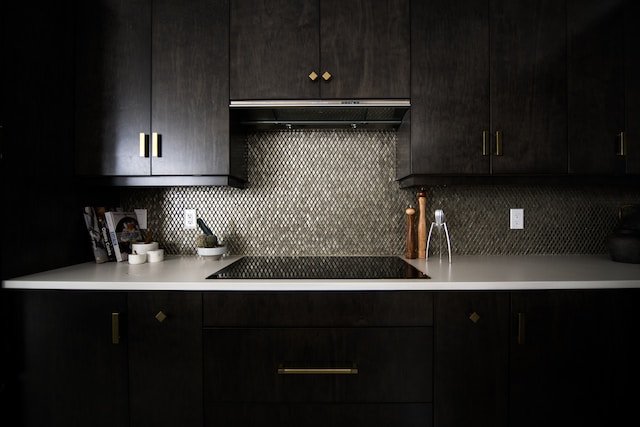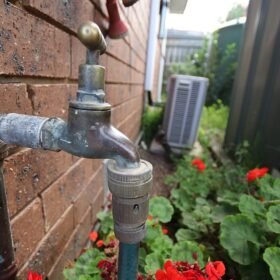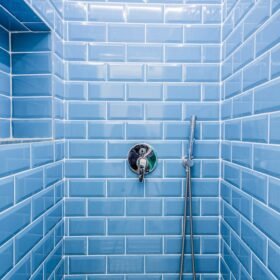In addition to being aesthetically pleasing, a clean kitchen is beneficial to your health. One of the most often used sections of the kitchen is the washbasin, which is prone to odour and filth accumulation. A bad odour coming from the drain is a typical problem with kitchen sinks. Food particles, oil, soap scum, and other material that amass in the drainpipe over time may be the cause of this. The best techniques to clean and deodorise your kitchen sink drain and get rid of any unpleasant odours are covered in this article.
Why Do Kitchen Washbasin Drains Smell?
Prior to talking about how to clear a stinky kitchen sink drain, it’s critical to comprehend what is causing the odour. Bacteria and organic waste that is degrading that builds up in the drainpipe are often the source of the smell. Food scraps, grease, and soap scum may clog the drainpipe and cause a buildup of muck that emits an unpleasant odour.
The overflow in the sink is another factor in a stinky kitchen sink drain. A little hole at the top of the washbasin known as the overflow stops water from spilling. Additionally, it may gather trash and emit bad odours.
Tools and Resources You will need
You’ll need the following equipment and supplies to clean and deodorise your kitchen sink drain:
- Boiling water
- Baking soda
- Vinegar
- Plunger
- Enzymatic drain cleaner
- Lemon juice
- Ice cubes
- Essential oils
- Cleaning brush
Cleaning a Kitchen Washbasin Drain

In order to clean a kitchen sink drain, follow these simple steps: clear the sink overflow; pour boiling water down the drain; use baking soda and vinegar; use a plunger; clean the sink drain; and use an enzymatic drain cleaner. Let’s examine each stage in further detail.
Step 1: Clean the sink drain of any visible debris.
Remove any visible debris from the drain as the first step in cleaning a kitchen sink drain. To clear up any food scraps, oil, or soap scum that has gathered in the drain, use a cleaning brush or your hands.
Step 1: Pour boiling water down the drain
Pour boiling water down the drain after clearing any visible material. Any grease or soap scum that may be lodged in the drainpipe may be removed with the use of boiling water. When handling boiling water, use caution to avoid burning yourself.
Step 3: Utilize vinegar and baking soda
Two all-natural cleaners that may help clean and deodorise your kitchen sink drain are vinegar and baking soda. Pour the mixture down the drain after combining one cup of baking soda with one cup of vinegar. After allowing it to rest for 30 minutes, rinse the drain with hot water. Baking soda and vinegar work chemically to dissolve any buildup in drainpipes and help get rid of bad odours.
Step 4: plunger
If the vinegar and baking soda remedies were unsuccessful, you can try using a plunger to clear any obstinate material from the drainpipe. Place the plunger over the drain and rapidly push it up and down. Fill the sink with enough water to cover the head of the plunger. The pressure generated by the plunger might aid in clearing any obstructions in the drainpipe and getting rid of unpleasant odours.
Step 5: Clean the washbasin overflow
As was already noted, odours might also come from the washbasin overflow. Use a cleaning brush and warm, soapy water to cleanse the sink overflow completely. Use a clean towel to dry it after rinsing it with water.
Step 6: Utilize an enzymatic drain cleaner
Use an enzymatic drain cleanser to get rid of any unpleasant odours if none of the aforementioned remedies are successful. Drain cleaners with enzymes and natural bacteria break down organic material and get rid of odours. To use the drain cleaner efficiently, according to the directions on the product label.
How to Freshen a Kitchen Drain
The next step is to deodorise your kitchen sink drain once you have cleansed it. A kitchen sink drain may be deodorised in three different ways:
Option 1: Combine ice cubes and lemon juice.
Small lemon slices should be placed in an ice cube tray. Place water in the tray and then freeze it. When the lemon ice cubes have frozen, pour boiling water down the drain while doing so. The ice cubes may assist clear any accumulation in the drainpipe, and the lemon juice can help get rid of any unpleasant odours.
Option 2: Mix vinegar and baking soda
Pour the mixture down the drain after combining one cup of baking soda with one cup of vinegar. After allowing it to rest for 30 minutes, rinse the drain with hot water. The vinegar and baking soda combination may assist clean the drain and eliminate any unpleasant odours.
Option 3: Apply essential oils
Pour some water and a few drops of your preferred essential oil down the drain. Essential oils like lemon, peppermint, and lavender may leave a nice scent in the kitchen while helping to get rid of any unpleasant odours.
Tips to Prevent a Smelly Kitchen Sink Drain

Prevention is preferable than treatment. The following advice can help you avoid a stinky kitchen sink drain:
Grease and oil should not be put down the drain. It may congeal and create blockages.
To stop food scraps and other waste from falling down the drain, use a drain catcher.
After each usage, pour hot water down the drain to dissolve any accumulation.
Food leftovers should be ground up in a trash disposal before being poured down the drain.
To avoid any accumulation of muck, routinely clean your drain and sink.
Conclusion
A stinky kitchen sink drain may be an annoyance, but with the correct equipment and supplies, it’s simple to clean and deodorize. You can make sure that your kitchen sink stays clean and odor-free by following the instructions provided in this article and adopting preventative precautions.
FAQs
Q. How frequently should I clean the drain in my kitchen sink?
A. To avoid any accumulation of muck, it is advised to clear your kitchen sink drain once a month.
Q. Can I clean the drain in my kitchen sink with bleach?
A. While using bleach to clear a kitchen sink drain might be helpful, doing so is not advised since it can harm the pipes and emit hazardous smells. Use natural substitutes instead, such vinegar and baking soda.
Q. What can you do to stop a stinky kitchen sink drain the best?
A. Avoiding dumping grease or oil down the drain, using a drain catcher, running hot water down the drain after each use, using a trash disposal, and frequently cleaning your sink and drain are the best ways to prevent a stinky kitchen sink drain.
Q. Can I clean the drain in my kitchen sink with a professional drain cleaner?
A. Commercial drain cleaners include strong chemicals that may harm pipes and emit poisonous gases, so using them is not advised. It is preferable to utilise natural alternatives like enzyme drain cleansers or baking soda and vinegar.
Q. How can I tell whether the unpleasant odour is coming from the drain in my kitchen?
A. Run water down each kitchen drain to see where the odour is coming from. If it still exists, the source of the smell has been found. The cause of the issue is the kitchen sink drain if the scent exclusively emanates from there.







